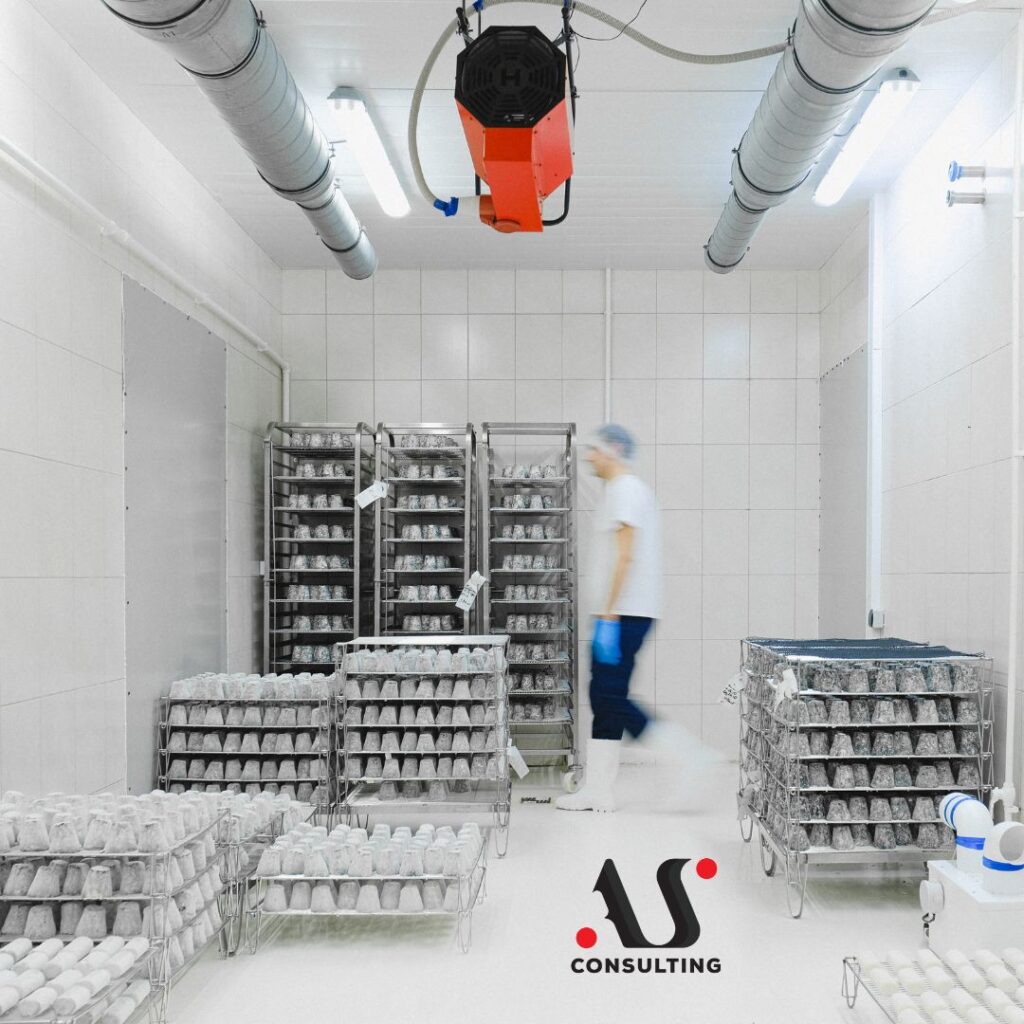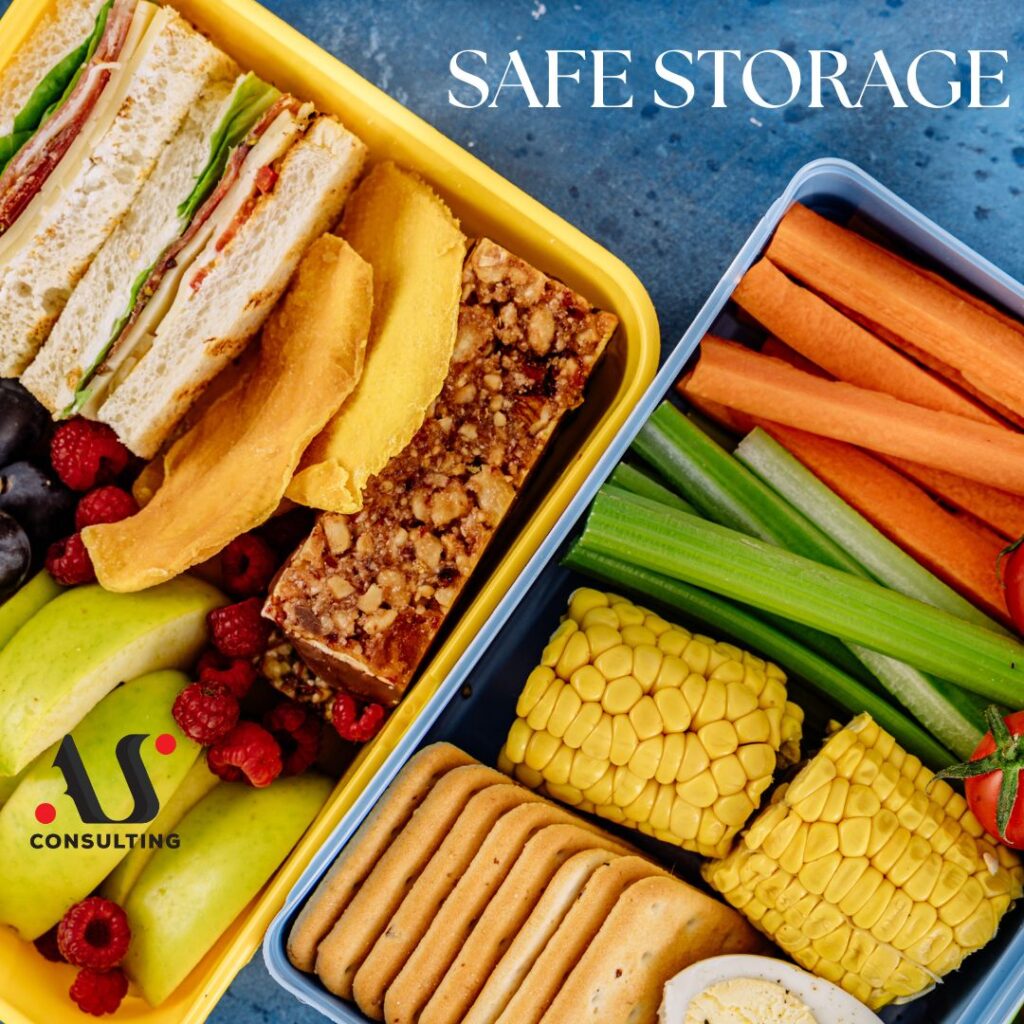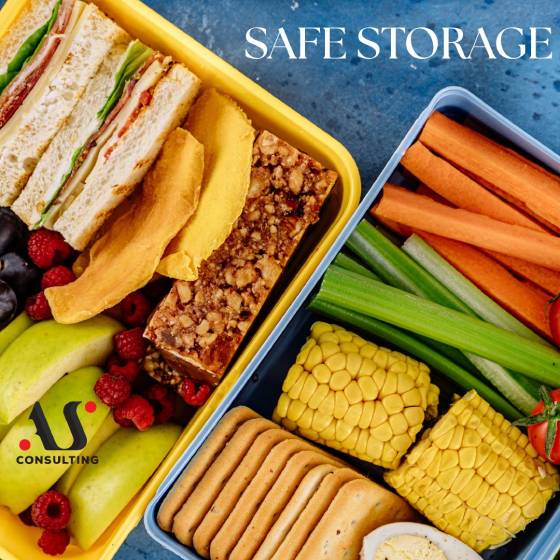
PRIVATE LABELS (PRIVATE BRANDS) IN THE FOOD INDUSTRY: DO MANUFACTURERS HAVE REASON TO BE CONCERNED?
March 28, 2025
ENVIRONMENTAL MONITORING PLAN
September 3, 2025Managing a food safety system involves producing a product that is safe for human consumption, but that’s not where it ends—the product’s safety must be ensured throughout the entire supply chain. Once a product is packaged and ready to leave the site, the job isn’t finished: before reaching the customer, the product will be stored or transported, and at that point, we are talking about the protection of the food product during logistics operations.
When we talk about logistics operations, which include transportation and storage, we must comply with the relevant requirements (standards and/or laws) in order to maintain product safety.

Storage of Food Products
Food products can be stored in:
- On-site storage facilities
- External storage facilities
In both cases, we follow the requirements of standards and/or legal regulations that ensure food remains safe during storage. We discussed the requirements of GFSI-recognized standards regarding logistics services in our blog post from April 15, 2021:
But what exactly needs to be followed during the storage process to ensure food remains safe—regardless of standard requirements?
- First, we must be aware, as food business operators, that maintaining proper storage conditions ensures the quality, safety, and legality of our products.
- Maintaining appropriate storage conditions, i.e., storing products under prescribed conditions, prevents food spoilage or contamination and the potential occurrence of foodborne illness.
- Proper storage conditions help avoid losses during the storage process.
- Adequate storage conditions preserve the nutritional value of food.

To store food under proper conditions, we must first understand what those conditions are—conditions that will extend shelf life, prevent the growth of microorganisms, and preserve qualitative characteristics.
Each food product (whether raw material, semi-finished, or finished product) has a defined shelf life. This shelf life is based on how long the product can remain stable under optimal storage conditions. In practice, storage serves as a preservation method—especially when it comes to cold or frozen storage.
Whether a company decides to store food on-site or externally, storage facilities must meet specific conditions to ensure the preservation of product quality and safety, such as:
- Requirements for construction and layout of storage areas
- Prevention of cross-contamination (e.g., allergens)
- Implementation of hygiene measures in storage facilities
- Prescribed storage conditions for each raw material/product (temperature, humidity, etc.)
- Implementation of pest control (deratization and disinsection)
- Enforcement of personal hygiene rules
- A traceability system
- Loading procedures and rules

One of the best choices for companies providing logistics storage services is the implementation of a product safety management system based on the requirements of one of the GFSI-recognized standards, such as IFS Logistics or BRC Storage and Distribution.
The advantage of these two logistics standards is that they are aligned with current versions of food safety standards. This way, producers who trust companies certified to IFS Logistics or BRC Storage and Distribution standards can be confident that their products retain quality and safety all the way to final delivery.
On the other hand, certified logistics companies gain a competitive edge and are recognized in the market as reliable partners capable of meeting high product quality and safety requirements.
If you recognize the benefits of implementing one of the GFSI-recognized standards, feel free to contact our agency. We will assist you with implementation or upgrading standard requirements, employee training, and internal audits!




